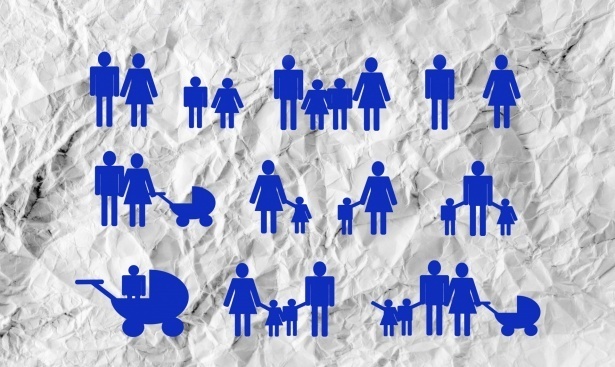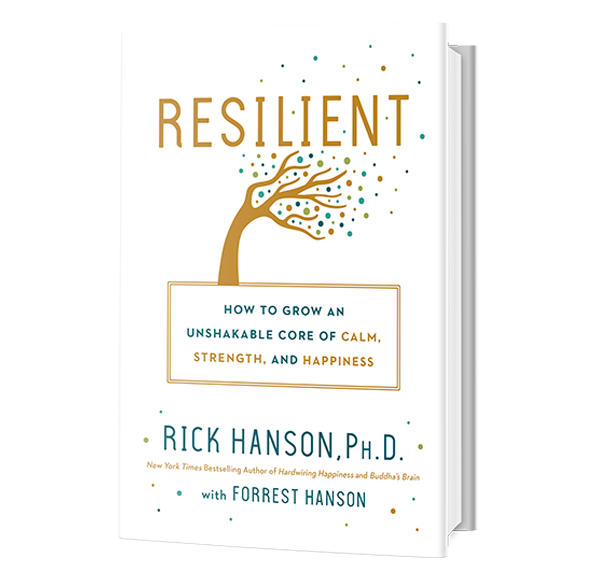Uninvolved Parenting vs. Neglect: Understanding the Differences
Originally posted on 17/07/2023 @ 14:40
Introduction
Definition of uninvolved parenting
Uninvolved parenting, also known as neglectful parenting, is a parenting style characterized by a lack of emotional involvement, responsiveness, and support from the parents towards their children. In uninvolved parenting, parents tend to be disengaged and detached, showing little interest or concern for their children’s needs, emotions, and development. This parenting style is marked by neglect, as parents may fail to provide the necessary care, supervision, and guidance that children require. It is important to differentiate uninvolved parenting from other parenting styles, as it can have significant negative effects on a child’s overall well-being and development.
Definition of neglect
Neglect is a form of parenting characterized by a lack of attention, care, and responsiveness towards a child’s needs. It involves failing to provide the necessary physical, emotional, and psychological support that is essential for a child’s healthy development. Neglect can manifest in various ways, such as not meeting basic needs like food, shelter, and clothing, ignoring a child’s emotional well-being, or failing to provide adequate supervision and protection. Unlike uninvolved parenting, which may stem from a lack of knowledge or skills, neglect is often a result of intentional or chronic disregard for a child’s welfare. It is important to differentiate between uninvolved parenting and neglect, as neglect can have severe and long-lasting effects on a child’s overall well-being and future outcomes.
Importance of understanding the differences
Understanding the differences between uninvolved parenting and neglect is crucial for promoting healthy child development. While both parenting styles involve a lack of parental involvement, there are distinct differences that have significant impacts on children’s well-being. Uninvolved parenting refers to a lack of emotional support, guidance, and responsiveness from parents, resulting in children feeling neglected and unsupported. On the other hand, neglect involves the failure to provide basic needs such as food, shelter, and medical care, which can have severe consequences for a child’s physical and emotional development. By understanding these differences, we can better identify and address the specific challenges faced by children in different parenting situations, and work towards creating nurturing environments that promote their overall well-being.
Characteristics of Uninvolved Parenting

Lack of emotional involvement
Lack of emotional involvement is a key characteristic that distinguishes uninvolved parenting from neglect. In uninvolved parenting, parents may be physically present but fail to provide emotional support and guidance to their children. They may show little interest in their child’s activities, emotions, or achievements, resulting in a lack of emotional connection. This lack of emotional involvement can have detrimental effects on a child’s development, as they may feel neglected, unimportant, and unsupported. In contrast, neglect refers to a complete disregard for a child’s emotional needs, where parents may be absent or indifferent to their child’s well-being. While both uninvolved parenting and neglect can have negative consequences, it is important to recognize the distinct differences between the two in order to address and intervene in the best interest of the child.
Minimal communication
Minimal communication is a key characteristic of uninvolved parenting. Parents who practice this style are often detached and disengaged from their children’s lives, rarely initiating or maintaining meaningful conversations. They may provide basic necessities such as food and shelter, but they lack emotional involvement and fail to establish a strong bond with their children. This lack of communication can have detrimental effects on a child’s development, leading to feelings of neglect and abandonment. Without regular and open lines of communication, children may struggle to express their needs, emotions, and concerns, hindering their overall well-being and growth.
Limited supervision and guidance
Limited supervision and guidance is a key aspect that distinguishes uninvolved parenting from neglect. Uninvolved parents may provide minimal supervision and guidance to their children, often leaving them to fend for themselves. They may fail to establish clear rules and boundaries or provide consistent discipline. On the other hand, neglectful parents completely disregard their children’s needs and fail to provide any form of supervision or guidance. This lack of involvement and neglect can have detrimental effects on a child’s overall development, leading to feelings of insecurity, low self-esteem, and a lack of trust in others.
Effects of Uninvolved Parenting

Emotional and behavioral issues in children
When it comes to emotional and behavioral issues in children, the parenting style plays a crucial role. Uninvolved parenting and neglect are two different approaches that can have significant impacts on a child’s development. Uninvolved parenting refers to a style where parents are emotionally detached and provide minimal guidance or support to their children. This lack of involvement can lead to feelings of neglect and abandonment in the child, which can contribute to emotional and behavioral problems. On the other hand, neglect is a more severe form of uninvolved parenting, where parents fail to meet the basic needs of their children, such as providing adequate food, shelter, and supervision. This extreme form of neglect can have long-lasting detrimental effects on a child’s emotional well-being and behavior. It is important to understand the differences between uninvolved parenting and neglect to recognize the potential consequences they can have on a child’s emotional and behavioral development.
Poor academic performance
Poor academic performance can be a result of both uninvolved parenting and neglect, although there are distinct differences between the two. In the case of uninvolved parenting, children may struggle academically due to a lack of guidance, support, and involvement from their parents. These parents may be emotionally detached, not providing the necessary resources or encouragement for their children’s education. On the other hand, neglectful parenting involves a more severe form of disengagement, where children’s basic needs, including their educational needs, are consistently ignored or overlooked. This can lead to a significant decline in academic performance, as children may not have access to proper schooling, educational materials, or a stable learning environment. It is important to recognize the impact of both uninvolved parenting and neglect on a child’s academic success and provide the necessary interventions and support to improve their educational outcomes.
Difficulty forming healthy relationships
One of the key differences between uninvolved parenting and neglect is the impact they have on a child’s ability to form healthy relationships. With uninvolved parenting, parents may be emotionally distant and unresponsive to their child’s needs, leading to a lack of emotional connection and support. This can make it challenging for the child to develop trust and intimacy in relationships later in life. On the other hand, neglect involves a complete disregard for the child’s basic needs, such as food, shelter, and safety. This extreme form of neglect can result in profound attachment issues and difficulties in forming any kind of healthy relationship. Both uninvolved parenting and neglect can have long-lasting effects on a child’s social and emotional development, making it crucial for parents and caregivers to provide the love, support, and guidance necessary for healthy relationship formation.
Causes of Uninvolved Parenting

Parental mental health issues
Parental mental health issues can have a significant impact on a child’s development and well-being. When parents struggle with mental health problems, such as depression or anxiety, they may find it difficult to provide the emotional support and stability that their child needs. This can result in a lack of engagement and involvement in the child’s life, leading to potential negative outcomes. It is important to differentiate between uninvolved parenting and neglect when considering the effects of parental mental health issues. Uninvolved parenting is characterized by a lack of emotional responsiveness and low levels of parental involvement, while neglect involves the failure to meet a child’s basic needs. Understanding these differences is crucial in order to provide appropriate support and intervention for both parents and children affected by parental mental health issues.
Substance abuse
Substance abuse is a critical issue that can have detrimental effects on both the individual and their family. It involves the misuse or excessive use of drugs or alcohol, leading to physical, psychological, and social problems. When it comes to parenting, substance abuse can significantly impact a parent’s ability to provide proper care and support to their children. The consequences of substance abuse can range from neglecting basic needs, such as food and shelter, to exposing children to dangerous environments and unstable relationships. It is important to recognize the distinction between uninvolved parenting and neglect in the context of substance abuse, as neglect implies a willful disregard for the child’s well-being, whereas uninvolved parenting may be a result of the parent’s own struggles with addiction. Understanding these differences is crucial in order to address the underlying issues and provide appropriate interventions for both the parent and the child.
Lack of parenting skills or knowledge
Lack of parenting skills or knowledge is a significant factor that distinguishes uninvolved parenting from neglect. Uninvolved parents may lack the necessary skills or knowledge to effectively meet their child’s needs. They may not understand the importance of providing emotional support, setting boundaries, or engaging in positive parenting practices. In contrast, neglectful parents may be aware of these skills but choose not to utilize them, resulting in a failure to meet their child’s basic needs. It is crucial to differentiate between uninvolved parenting due to a lack of skills or knowledge and neglect, as the underlying reasons and potential solutions may vary.
Definition of Neglect

Failure to provide basic needs
Failure to provide basic needs is a critical aspect that distinguishes uninvolved parenting from neglect. Uninvolved parents may unintentionally overlook their child’s basic needs due to a lack of knowledge or awareness. However, neglectful parents actively disregard their child’s essential requirements, such as food, clothing, shelter, and medical care. Neglect can have severe consequences on a child’s physical and emotional well-being, leading to malnutrition, poor hygiene, and developmental delays. It is crucial to recognize the distinction between uninvolved parenting and neglect to ensure the safety and well-being of children.
Emotional neglect
Emotional neglect is a form of parental neglect that involves the failure to provide emotional support and attention to a child. Unlike physical neglect, which refers to the failure to meet a child’s basic physical needs, emotional neglect focuses on the lack of emotional nurturing and responsiveness. This can include ignoring a child’s emotional needs, dismissing their feelings, or consistently failing to provide comfort and reassurance. Emotional neglect can have long-lasting effects on a child’s development, leading to difficulties in forming healthy relationships, low self-esteem, and emotional instability. It is important to distinguish between uninvolved parenting and emotional neglect, as uninvolved parents may simply lack the skills or knowledge to provide emotional support, while emotionally neglectful parents actively disregard their child’s emotional well-being.
Physical neglect
Physical neglect refers to the failure of a parent or caregiver to provide for a child’s basic physical needs, such as food, clothing, shelter, and medical care. It is a form of child maltreatment that can have serious and long-lasting consequences for a child’s well-being. Physical neglect can range from occasional instances of neglect to chronic and severe neglect, where a child’s basic needs are consistently unmet. This type of neglect can result in malnutrition, inadequate hygiene, untreated medical conditions, and overall poor physical health. It is important to distinguish physical neglect from uninvolved parenting, as uninvolved parents may not meet their child’s emotional needs but still provide for their physical well-being.
Differences between Uninvolved Parenting and Neglect
Intentions of the parent
The intentions of the parent play a crucial role in determining the type of parenting style they adopt. In the case of uninvolved parenting, the parent may have a lack of interest or investment in their child’s well-being and development. They may prioritize their own needs and desires over those of their child, leading to minimal emotional involvement and limited guidance. On the other hand, neglectful parenting is characterized by a complete disregard for the child’s needs and welfare. The parent’s intentions in neglectful parenting are often driven by indifference or a lack of awareness of their responsibilities as a caregiver. While both uninvolved and neglectful parenting styles result in inadequate parental involvement, the underlying intentions differ, with uninvolved parenting stemming from disinterest and neglectful parenting arising from a lack of understanding or awareness.
Degree of harm to the child
The degree of harm to the child is a crucial factor when distinguishing between uninvolved parenting and neglect. Uninvolved parenting refers to a parenting style where the parent shows little to no interest or involvement in their child’s life. While this may result in emotional neglect and lack of support, it does not necessarily cause significant harm to the child’s well-being. On the other hand, neglect involves the failure to provide the basic needs and care required for a child’s physical, emotional, and cognitive development. Neglect can lead to severe and long-lasting negative effects on the child’s overall development and well-being. Therefore, it is important to recognize the distinction between uninvolved parenting and neglect based on the degree of harm inflicted on the child.
Legal implications
When it comes to uninvolved parenting and neglect, there are important legal implications to consider. Uninvolved parenting refers to a parenting style where the parent is emotionally detached and provides little to no guidance or support to their child. While it may not necessarily be considered neglect in a legal sense, uninvolved parenting can still have serious consequences for the child’s well-being and development. On the other hand, neglect is a form of child abuse that involves the failure to provide basic needs and care for a child. Neglect is a clear violation of the law and can result in legal intervention, such as the removal of the child from the home or criminal charges against the neglectful parent. It is crucial to understand the differences between uninvolved parenting and neglect, as the legal implications can have a significant impact on the lives of both the child and the parent.






